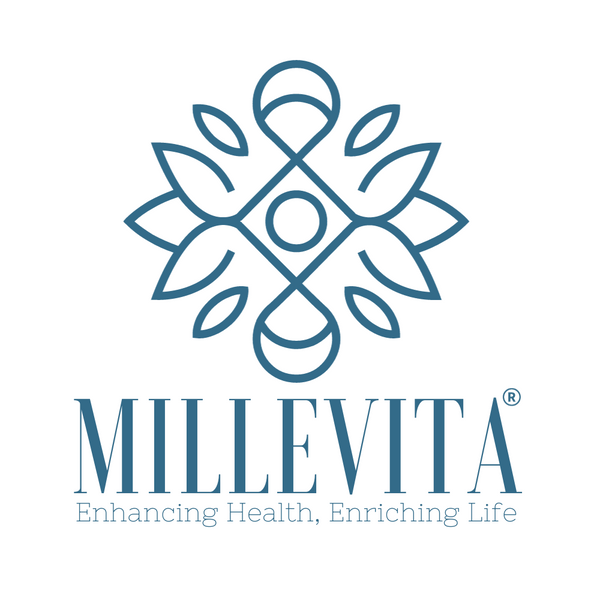

Brain on Folinic: The Nutrient with Neuro Power
Share
Table of Contents
Introduction
When people think of brain-boosting nutrients, they often skip over one of the most powerful: folinic acid. Unlike the more common folic acid, folinic acid is a bioactive form of vitamin B9 that your body can use immediately—no conversion required.
This matters. Especially if you or your child has a condition tied to neurological function, development, or folate metabolism, like ADHD, autism spectrum disorder (ASD), or even brain fog and low mood.
In this article, we’ll break down how folinic acid works, why it’s different from folic acid, and what the latest science says about its benefits for cognitive performance, brain development, and overall neurological health.
What Is It?
Folinic acid is a bioactive form of folate—also known as vitamin B9—that your body can use right away. Unlike folic acid, which is synthetic and must be converted by enzymes in the liver, folinic acid skips that step and goes straight to work at the cellular level.
This is a big deal for people with impaired folate metabolism, especially those with MTHFR gene mutations. These mutations can limit the body's ability to convert folic acid into a usable form, making standard supplements less effective or even harmful over time.
Folinic acid is commonly used in medical settings to reduce the side effects of certain drugs like methotrexate. But it’s also gaining attention for its impact on brain chemistry, developmental health, and cognitive performance—especially in children and people with neurological conditions.
Cognitive Benefits
Folinic acid plays a crucial role in brain function because it supports the production of key neurotransmitters, reduces inflammation, and helps regulate genes involved in mental performance. Here’s how it supports cognitive health:
1. Supports Neurotransmitter Production
Folinic acid helps drive the methylation cycle, which your body uses to produce dopamine, serotonin, and norepinephrine—chemicals essential for mood, focus, and memory.
2. Lowers Homocysteine and Inflammation
High homocysteine levels are linked to brain fog, memory loss, and even Alzheimer’s. Folinic acid helps convert homocysteine into a safer form, protecting brain cells from damage.
3. Fuels Mitochondrial Function
Your brain demands a ton of energy. Folinic acid supports mitochondrial health, which improves energy production at the cellular level—key for mental clarity and cognitive endurance.
Child Development
Folinic acid is especially important during infancy and childhood, when the brain is growing rapidly and demands high levels of active folate for proper development.
1. Critical for Early Brain Growth
Folinic acid supports DNA and RNA synthesis, which fuels cell division and neural development. Without enough folate, the brain can't build and repair tissue efficiently—leading to developmental delays or cognitive issues.
2. May Improve Outcomes in Autism Spectrum Disorder (ASD)
Some children with ASD produce antibodies that block folate from entering the brain. Folinic acid can bypass this problem by using alternate transport pathways, and studies show it may improve speech, social interaction, and focus in these cases.
3. Helps with Speech and Attention in Neurodiverse Kids
Parents and clinicians have reported significant gains in language, attention span, and behavior in children who supplement with folinic acid—especially when guided by lab testing and medical oversight.
Folinic vs Folic
While folinic acid and folic acid are both forms of vitamin B9, they are not created equal—especially when it comes to neurological health and how the body processes them.
1. Bioavailability
Folic acid is synthetic and must be converted by the liver into usable forms. Folinic acid is already active, meaning it skips the conversion process and goes straight to work.
2. MTHFR Gene Mutations
Up to 40% of people have a mutation in the MTHFR gene, which limits their ability to convert folic acid. This can lead to folate buildup in the blood but a deficiency in the brain. Folinic acid bypasses this bottleneck entirely.
3. Safety and Effectiveness
Folinic acid is considered safer and more effective in individuals with impaired folate metabolism. It’s also used in medical settings, which speaks to its potency and reliability in sensitive populations.
How to Take It
Folinic acid is available as a supplement in capsules, tablets, and liquid drops. It's also used therapeutically in clinical settings, but dosing varies depending on age, condition, and individual needs.
1. Common Dosages
General daily doses range from 200 mcg to 800 mcg for basic support. In therapeutic cases (like ASD or MTHFR mutations), doses may go up to 5 mg or more under medical supervision.
2. Medical Use Cases
Folinic acid is often prescribed for people undergoing chemotherapy, those with cerebral folate deficiency, or children with neurodevelopmental challenges. In these cases, it’s treated as a clinical-grade nutrient, not a standard supplement.
3. Always Consult a Healthcare Provider
Because folinic acid is potent and affects methylation and neurotransmitter activity, it’s best used with guidance—especially in children or individuals with chronic conditions. Lab testing can help determine the right form and dosage.
Checklist: Smarter Folate for Brain & Development
Tick what you’re ready to do. Small, steady actions add up to real changes over time.
-
Folinic acid bypasses common gene variants (like MTHFR) so your brain gets active folate immediately.
-
Typical support is 200–800 mcg daily; therapeutic doses can be higher but only with a practitioner’s guidance.
-
Active B12 (methylcobalamin) and B6 (P5P) work with folate to drive neurotransmitter production and methylation.
-
Track behaviour, energy and clarity over weeks. Subtle benefits are easy to miss day-to-day.
-
Folate receptor antibodies, homocysteine or methylation markers can help personalise dosing.
-
Folate is one piece of the puzzle. Brain health still needs quality food, rest and fats.
-
Medications like methotrexate and anticonvulsants can alter folate needs—get clearance before changing supplements.
-
Expect gradual improvements over weeks, not overnight transformations.
Disclaimer: Educational only. Not a substitute for individual medical advice. Always follow product labels and consult a healthcare professional as needed.
Folinic Acid and Neuro Support Products
These professional-grade supplements from Millevita support methylation, cognitive function, and neurological health—ideal for those exploring folinic acid and related nutrients:
FAQs
Yes, when used under medical supervision. It's often used in pediatric neurology, especially for children with ASD, developmental delays, or folate receptor autoantibodies.
You can, but it's often unnecessary. Folinic acid offers more efficient absorption and bypasses conversion issues—making it a better choice in most cases.
Yes. By supporting neurotransmitter production and reducing homocysteine, folinic acid may help improve clarity, focus, and energy levels—especially in those with methylation issues.
Both are active forms of folate. Folinic acid is a precursor to methylfolate and is considered more stable and gentler for sensitive individuals.
Natural sources include leafy greens, liver, legumes, and citrus fruits—but supplementing ensures consistent, therapeutic levels.
Conclusion
Folinic acid isn’t just another supplement—it’s a powerful, bioavailable form of folate that plays a critical role in cognitive health and development. From supporting neurotransmitter production to reducing inflammation and aiding mitochondrial function, it offers benefits that go far beyond basic nutrition.
For children, especially those with neurodevelopmental challenges or MTHFR gene mutations, folinic acid may help unlock better focus, speech, and behavior when used under professional guidance. For adults, it can support mental clarity, mood, and long-term brain resilience.
Whether you're exploring it for personal use or for a child’s development, folinic acid deserves serious consideration as part of a brain-healthy routine—especially when other folate forms fall short.
Disclaimer
The information provided in this article is for educational purposes only and is not intended as medical advice. Always consult a qualified healthcare professional before starting any new supplement, especially for children, individuals with medical conditions, or those taking medication.
Folinic acid supplementation should be guided by clinical evaluation and lab testing when used for therapeutic purposes. Results may vary based on individual biochemistry and health status.
References
- Ramaekers, V. T., et al. (2001). Improvement of autistic features by folinic acid . *Developmental Medicine & Child Neurology.*
- Rossignol, D. A., & Frye, R. E. (2012). Folate receptor autoimmunity and cerebral folate deficiency in autism spectrum disorders . *SpringerPlus.*
- National Institutes of Health – Office of Dietary Supplements. Folate: Fact Sheet for Health Professionals . Accessed 2025.
- Sweeney, M. R., et al. (2009). Folic acid fortification and public health: report on the risks and benefits . *Public Health Nutrition.*
- Lucock, M. (2000). Folic acid: nutritional biochemistry, molecular biology, and role in disease processes . *Molecular Genetics and Metabolism.*






